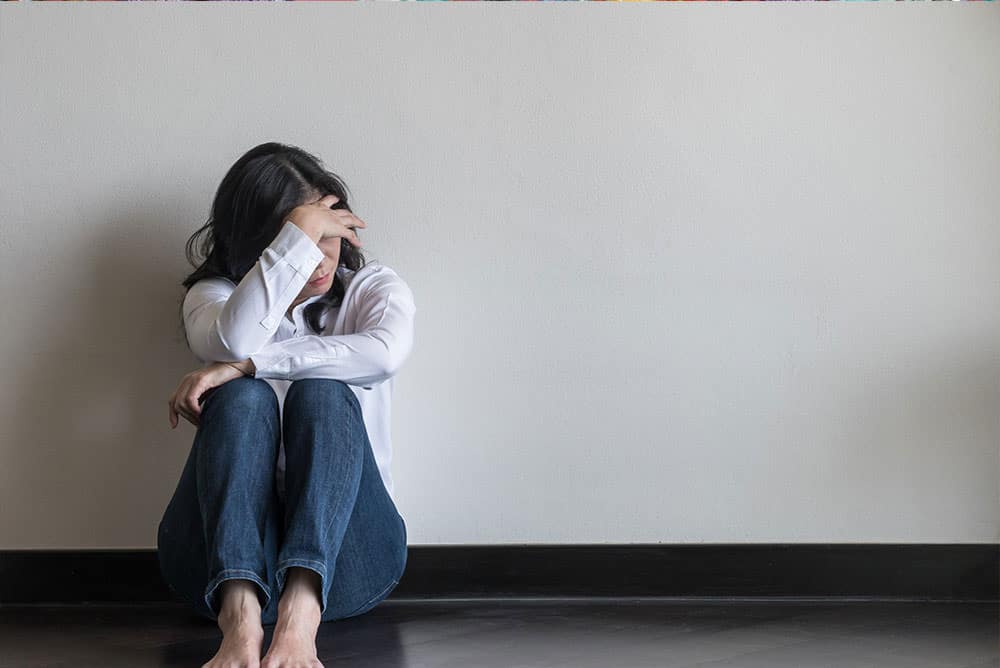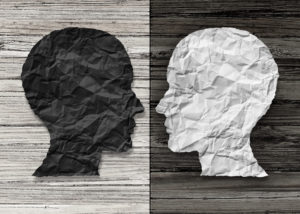Those who have dealt with anxiety disorders know it’s more than just worrying and nervousness.
Anxiety is a mental illness capable of affecting every aspect of your life. It can keep you from going out with friends, applying for a better job, or pursuing a meaningful relationship.
Research shows roughly 1 in 5 people suffer from an anxiety disorder. While it’s incredibly common, it’s still not well-understood.
However, the best way to live with and treat anxiety is by first understanding it.
Read on for our comprehensive guide to understanding anxiety disorders.
Causes of Anxiety Disorders
Researchers have not yet found an absolute cause of anxiety disorders. However, they can link many conditions and factors to them.
Often, several factors contribute to the onset of an anxiety disorder.
The Symptom of Underlying Issues
Anxiety can sometimes be a symptom of something else. For example, the first symptom of diabetes, irritable bowel syndrome, and heart disease is often anxiety.
Those detoxing from drugs and alcohol will also experience anxiety as the substance is leaving their system.
Traumatic Experiences
Post-traumatic stress disorder is most commonly known for its association with military veterans. However, PTSD is linked to endless human experiences.
For example, women who are sexually abused, children who are physically and emotionally abused, and parents who suffer a miscarriage can all develop PTSD.
Genetics
Scientists believe mental illnesses are genetic to some degree. While you are neither guaranteed to have it or not have it, genes play a large role in anxiety disorder development.
Medication Side Effects
Sometimes, if anxiety has no immediate or logical source, it could be a side effect of a drug or medication. For example, it’s not uncommon for antidepressants to cause anxiety for the first couple of weeks of usage.
Symptoms of Anxiety Disorders
Anxiety disorders have several recognizable symptoms. Anxiety sufferers should be aware, however, that many of these symptoms are also caused by other factors, such as medications, illnesses, sleep apnea, etc.
Sleeplessness and Insomnia
Anxiety is an illness that keeps the mind busy. Unfortunately, the mind is busy due to stress and worry.
This makes it incredibly difficult to get restful sleep, which in turn only increases anxiety.
Panic Attacks
One of the most terrible symptoms of anxiety disorders is panic or anxiety attacks.
Events or situations trigger panic attacks in people and they are overcome with fear and anxiety to the point of debilitation.
Fortunately, only 3% of Americans experience frequent panic attacks, while 22% will experience it at least once in their lifetime.
Excessive Worrying
Excessive worrying is an incredibly common symptom of anxiety disorders.
People who experience excessive worrying are affected by normal events nearly every day. Their worrying is so powerful that people have a hard time focusing on anything else.
Irritability and Agitation
Anxiety disorders mess with our nervous systems. They ignite our survival responses and pump us full of adrenalin while increasing our blood pressure and heart rate.
Without anything to do with all of this fight or flight energy, we become extremely agitated and restless.
Additionally, because our minds are so stressed out, we become irritable with people over normal interactions and conversations. In fact, 90% of people with anxiety disorders admit to irritability during flare-ups.
Irrational Avoidance of Possible Triggers
Anxiety disorders interrupt everyday life by causing the sufferers to avoid certain situations that may trigger panic attacks.
Unfortunately, these situations can be as simple as going to the grocery store or running into your boss at work.
Muscle Tension
Most people who suffer from anxiety disorders also experience muscle tension. Although, scientists don’t fully understand why.
Irrational Fears
Anxiety disorders also cause irrational fears. Also known as phobias, these fears include normalcies like heights, spiders, and clowns, but also strange phobias such as the fear of certain colors, stars, and long words.
Lack of Focus
Constant stress and anxiety naturally come with an extreme lack of focus. It’s difficult to concentrate when your brain is consumed with worry.
Types of Anxiety Disorders
There are numerous anxiety disorders. However, some are more common than others. Each type of disorder comes with its own unique fears and symptoms.
General Anxiety Disorder
GAD is identified as excessive worrying, stress, and tension over mundane issues and events. The worrying involved in GAD is unrealistic and unfounded.
Social Anxiety Disorder
Social phobia is defined as excessive fear or worry during normal social situations. Sufferers of this anxiety disorder obsess over the idea of embarrassing themselves or judgment from others.
Post Traumatic Stress Disorder
PTSD is an anxiety disorder caused by a cataclysmic event in someone’s life. Generally, this event is so traumatic to the victim that it affects them for the rest of their life, often reliving it in their minds.
Phobias
Phobias are extreme, irrational fears. People with this type of anxiety disorder generally go great lengths to avoid said phobias. Phobias come in the form of objects, situations, places, colors, numbers, etc.
Panic Disorder
People who suffer from panic disorder have unexpected, random attacks of intense fear, anxiety, and terror. Panic attacks come with physical symptoms such as difficulty breathing, chest pain, and sweating.
Treating Anxiety Disorders
While we’re still unsure of what exactly causes anxiety, we have a good grasp on how to treat it.
There are several methodologies for treating anxiety disorders. People who suffer from them have several options for receiving help.
Meditation
Meditation shows to be one of the most effective anxiety relievers. Meditation teaches us to calm the mind, be in the present, and relax. Meditation is so powerful it’s actually effective for pain relief as well.
CBD Oil
Cannabidiol is a derivative of the cannabis plant. It has no psychedelic properties such as THC that is found in marijuana and is quickly becoming a popular treatment.
Counseling
People with anxiety disorders respond well from counseling and therapy. Therapists help them understand their disorder, why it’s there, and how to work through episodes.
Cognitive Behavior Therapy
Cognitive behavior therapy teaches patients how to recognize their thought patterns that lead to anxiety episodes. With this knowledge, they can change their mental processes to prevent triggering anxiety attacks.
Residential Treatment
Residential programs are one of the most effective treatments for anxiety disorders. Patients move into a treatment facility and receive round-the-clock help from staff.
For example, Northbound’s residential treatment consists of cognitive behavior therapy, rational-emotional behavior therapy, and a 12-step program.
Medications
Medications are available to patients with anxiety disorders. However, these medications such as SSRIs, SNRIs, TCAs, and Benzodiazepines come with a whole host of negative side effects.
Some people respond favorably to these medications, although, quitting them can cause many withdrawal symptoms. Additionally, some of them are also addictive.
Moving Forward with Anxiety Disorders
Having an anxiety disorder isn’t a death sentence. Don’t treat it like one. There is help out there for everyone in every situation.
Don’t let your anxiety get in the way of living a happy life, finding love, or pursuing your dreams.
At Northbound we treat all forms of anxiety disorders and mental illnesses.
Come into one of our locations in Orange County, St. Louis, or Seattle. Find out what we can do for you.
Author
-

President, CEO & Founder at Northbound Treatment Network
Paul Alexander is the CEO, President & Founder of Northbound Treatment Network in Newport Beach, California. He believes wholeheartedly in transformational leadership, organizational health and effective, fully integrated substance use disorder and mental health treatment. With over 27 years of experience in behavioral healthcare, Paul has extensive knowledge of “in vivo” treatment modalities, clinical development, operations, strategy, marketing and financial planning. He has been widely recognized for his development of collegiate-based residential treatment programs for students in recovery and authored a research study at The University of California confirming this modality’s effectiveness.
Paul’s comprehensive professional experience, willingness to innovate, and emphasis on organizational health are vital factors in Northbound’s continued success. Paul received his Certified Addiction Treatment Specialist training at Saddleback College in Mission Viejo, CA, and was awarded Outstanding Alumni Service Award in 2002. Paul holds a Bachelor of Arts degree in Criminology, Law and Society, Summa Cum Laude, from University of California, Irvine, and a Juris Doctorate degree from Loyola Law School of Los Angeles. Paul currently serves on The National Association of Addiction Treatment Providers (NAATP) board. In addition, he serves on The Family Recovery Foundation board and The CarePossible board in Orange County; both organizations are committed to raising funds for family recovery and treatment for former military personnel. Paul is in recovery himself and lives in Orange County with his wife Silvana and his two young sons, Noah and Dean.










